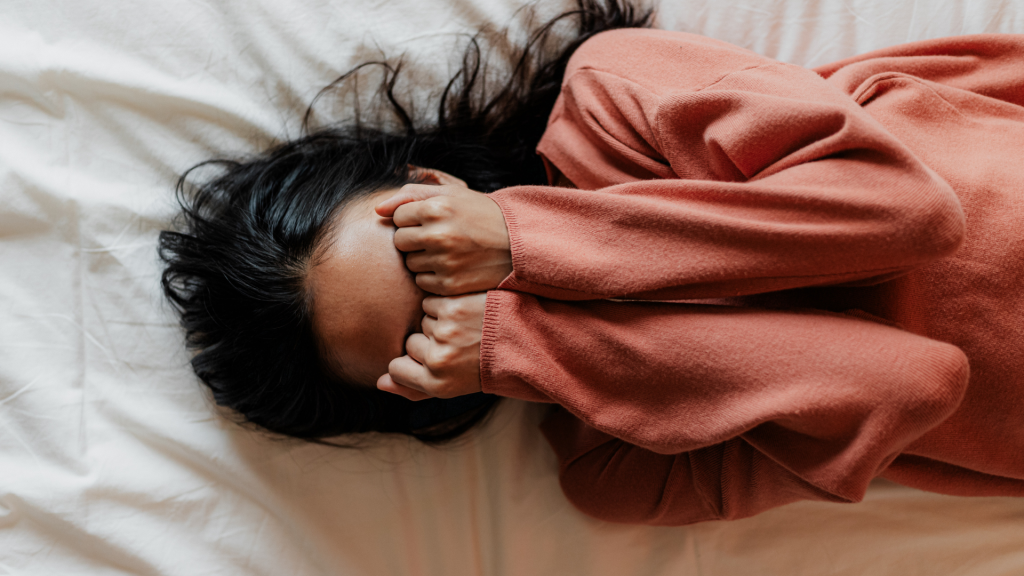Start your journey with counselling for anxiety disorder led by professionals
Start your journey with counselling for anxiety disorder led by professionals
Blog Article
Discovering Different Methods in Coaching for Anxiety Problem for Lasting Modification
When taking on stress and anxiety problems, it's vital to explore a selection of therapy methods. Each method offers one-of-a-kind understandings and tools to help you manage your signs and symptoms properly. You might locate that incorporating strategies can yield the most effective outcomes. However, understanding the nuances of these strategies is vital to promoting enduring adjustment. Suppose the right mix could launch a new level of emotional wellness for you?
Comprehending Stress And Anxiety Conditions: A Quick Summary
Anxiety disorders, which impact numerous people worldwide, can greatly influence every day life. You may experience overwhelming feelings of concern or fret that appear uncontrollable. These feelings can cause physical signs like an auto racing heart, sweating, and even dizziness. Typical kinds of stress and anxiety problems include generalized anxiousness disorder, panic problem, and social anxiety disorder. Each has special indications, yet they all share a tendency to interrupt your regular and relationships.Understanding the origin of your anxiousness is vital. It could originate from genetics, brain chemistry, or life experiences. Identifying your triggers can aid you manage your feedbacks better. It is essential to keep in mind that you're not alone in this battle. Several people encounter comparable obstacles, and looking for help is a solid action toward sensation much better. By learning more about anxiety conditions, you're currently on the path to understanding and handling your problem better.
Cognitive-Behavioral Treatment: Testing Adverse Thought Patterns

Determining Unfavorable Idea Triggers
When you encounter minutes of distress, identifying the particular triggers behind your unfavorable thoughts can be important in handling anxiety. Beginning by paying interest to scenarios that provoke feelings of fear or concern. Is it a jampacked area, a forthcoming target date, or a discussion with particular people? Write down these instances in a journal. This will certainly assist you determine patterns in your reasoning. Notice physical experiences that accompany your negative thoughts, like a racing heart or tightness in your breast. By determining these triggers, you get understanding right into what's sustaining your anxiety. Recognizing these links is the initial step in testing those thoughts and ultimately gaining back control over your psychological responses.

Replacing Thoughts With Positives
Challenging adverse idea patterns is a crucial step in transforming your attitude and reducing anxiety. You may usually find yourself trapped in cycles of insecurity or catastrophic thinking. Rather than allowing these ideas dictate your sensations, technique changing them with realistic options or positive affirmations. As an example, when you think, "I can't manage this," move it to, "I can take care of difficulties one action at a time (Counseling services for anxiety)." This basic change can considerably impact your mood. Consistently determining and responding to these adverse ideas helps create a much healthier inner discussion. Bear in mind, it takes time and effort, however constantly exercising this strategy can lead to long-term change, equipping you to encounter stress and anxiety with renewed confidence and resilience
Structure Coping Methods With Each Other
Replacing negative ideas is just the beginning of managing anxiety properly. To create long-term adjustment, you need to build coping strategies that encourage you. Cognitive-Behavioral Therapy (CBT) assists you determine and challenge those purposeless idea patterns. Together, you and your therapist can discover just how these thoughts influence your feelings and behaviors.Start by establishing practical strategies, like journaling or mindfulness workouts, that allow you to challenge stress and anxiety head-on. When you encounter your concerns gradually, you'll find out to respond in different ways.

Mindfulness and Acceptance-Based Approaches: Growing Present-Moment Recognition
As you navigate the intricacies of anxiousness, integrating mindfulness and acceptance-based methods can significantly enhance your ability to grow present-moment understanding. By concentrating on the here and currently, you'll locate that you can observe your ideas and sensations without judgment. This method helps you recognize your anxiousness without feeling bewildered by it.Engaging in mindfulness workouts, such as deep breathing, body scans, or guided reflections, enables you to ground yourself in your current experience. Acceptance-based approaches urge you to accept your emotions as opposed to combat against them. They lose their power over you.Incorporating these practices right into your everyday routine can transform how you respond to stress and anxiety when you approve your sensations. You'll create strength and discover to browse difficult scenarios with greater convenience. Eventually, cultivating present-moment recognition lays the structure for long-term adjustment, equipping you to lead a more meeting life.
Direct Exposure Treatment: Confronting Concerns Gradually
Exposure therapy aids you confront your concerns in a steady method, making it much less frustrating. You'll learn strategies to encounter anxiety-provoking circumstances action by step, while also developing coping approaches to manage your reactions. This technique encourages you to take control and decrease stress and anxiety with time.
Gradual Exposure Strategies
When facing anxiety, slowly challenging your fears can be an effective method to restore control. This technique, called progressive exposure, entails gradually exposing on your own to the circumstances or objects that cause your anxiousness. Beginning with less challenging scenarios and slowly work your means as much as even more difficult ones. If you're afraid of public talking, you might start by talking in front of a mirror, after that advance to sharing ideas with a good friend, and ultimately resolve a small team. Each action assists desensitize you to the anxiety, developing your self-confidence gradually. Remember, it's vital to speed on your own and celebrate tiny success as you relocate via this procedure, reinforcing your capacity to take care of anxiety efficiently.
Structure Coping Approaches
Structure reliable coping techniques is necessary for taking care of anxiousness, particularly as you face your worries progressively. One powerful technique is direct exposure therapy, where you start by facing your anxieties in a controlled way. Begin with less intimidating situations and gradually work your means approximately even more difficult scenarios. This steady direct exposure assists desensitize you to anxiety causes, making them much less overwhelming.Incorporate relaxation methods, such as deep breathing or mindfulness, to calm your mind during exposure. Track your progression, commemorating tiny triumphes along the way to boost your self-confidence. Remember, it's okay to take your time; the objective isn't excellence but stable enhancement. By constructing these methods, you'll equip on your own to navigate anxiousness and embrace life extra completely.
Psychodynamic Therapy: Discovering Origin of Stress And Anxiety
Psychodynamic treatment checks out the subconscious mind, disclosing the origin creates of your stress and anxiety - Counseling services for anxiety. By examining your ideas, feelings, and past experiences, this technique aids you uncover underlying problems and unsettled problems that might add to your present important link anxiety. You'll work with a therapist to explore youth experiences, partnerships, and psychological patterns that form your actions today.As you obtain insight right into these much deeper layers of your mind, you'll begin to recognize exactly how past occasions affect your present habits. This understanding can cause catharsis, enabling you to refine feelings you could have suppressed.Through the restorative relationship, you can likewise recognize protection devices that might have created over time, supplying a more clear course to change. Ultimately, psychodynamic therapy equips you with the devices to resolve your anxiousness at its core, advertising long-term transformation in your emotional wellness
Alternative and integrative Techniques: Integrating Methods for Greater Effectiveness
Integrating different restorative techniques can enhance your trip towards handling stress and anxiety better. By integrating elements from cognitive-behavioral therapy, mindfulness techniques, and all natural techniques, you can produce a tailored strategy that addresses your unique requirements. You may use cognitive-behavioral techniques to challenge unfavorable idea patterns while integrating mindfulness exercises to ground on your own in the present moment.Additionally, discovering holistic techniques such as yoga exercise or meditation can advertise relaxation and reduce stress and anxiety signs. This blend enables you to establish higher self-awareness and resilience.Experimenting with these diverse techniques can aid you uncover what reverberates most with you. Bear in mind, it has to do with finding a harmony that functions, rather than adhering to a single technique. This integrative technique not just supplies prompt alleviation but additionally promotes long-lasting abilities for handling anxiety, empowering you to redeem control over your life.
The Function of Assistance Systems: Structure Resilience With Connection
While it may appear that handling stress and anxiety is a singular journey, having a strong support system can play a crucial role in your durability. Bordering on your own with empathetic good friends, family, or support system produces a secure room where you can openly share your experiences and feelings. You advise yourself that you're not alone in this struggle.These relationships provide motivation and can offer functional coping methods that have actually functioned for others when you attach with others. It's additionally a chance to acquire viewpoint; good friends can help you see circumstances differently, reducing sensations of isolation.Moreover, psychological support promotes a feeling of belonging, which can greatly relieve anxiousness symptoms. By leaning on your support group, you can construct strength and tackle challenges more properly. Keep in mind, getting to out for help is an indicator of stamina, and it can make all the distinction in your journey toward taking care of anxiety.
Frequently Asked Questions
What Are the Typical Signs of Stress And Anxiety Conditions?
You may experience uneasyness, tiredness, trouble focusing, impatience, muscle mass tension, and rest disturbances. Physical signs and symptoms can consist of rapid heartbeat, sweating, and trembling. Identifying these signs early can help you seek proper assistance and therapy.

How Long Does Therapy Usually Last for Anxiety Conditions?
Therapy for anxiousness disorders usually lasts anywhere from a couple of weeks to a number of months. It actually relies on your individual demands, progress, and the methods your specialist utilizes to aid you manage your anxiousness effectively.
Can Medicine Be Utilized Alongside Treatment for Anxiousness?
Yes, medication can most definitely be used along with therapy for stress and anxiety. Incorporating both methods usually enhances treatment performance, assisting you take care of symptoms while discovering underlying issues via counseling. Constantly consult your health care provider for individualized advice.
Are There Self-Help Approaches for Handling Anxiousness?
Yes, there are several self-help techniques for handling anxiousness. You can exercise mindfulness, involve in normal exercise, preserve a well balanced diet regimen, develop a regular, and make use of deep breathing strategies to help in reducing stress and anxiety symptoms efficiently.
Exactly how Do I Know if I Need Specialist Aid for Anxiety?
You must consider her explanation seeking professional help for anxiety if it interrupts every day life, creates substantial distress, or if self-help strategies aren't functioning. Count on your impulses; connecting can lead to far better coping abilities and support. Usual types of anxiety disorders include generalised anxiety condition, panic condition, and social anxiety condition. When you encounter minutes of distress, acknowledging the particular triggers behind your negative ideas can be essential in managing anxiousness. Changing adverse look at these guys thoughts is just the start of handling stress and anxiety efficiently. By examining your thoughts, sensations, and past experiences, this approach assists you reveal underlying conflicts and unsolved problems that may add to your present anxiety. It's additionally a chance to get point of view; buddies can aid you see circumstances differently, lowering feelings of isolation (Counseling services for anxiety).Moreover, psychological support cultivates a feeling of belonging, which can considerably alleviate anxiety symptoms
Report this page